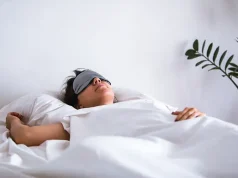
Testosterone boosters have become a popular supplement among men looking to increase muscle mass, improve energy levels, and enhance overall well-being. However, with their rise in popularity, many myths and misconceptions have surfaced about their effectiveness, safety, and purpose.
In this blog, we’ll debunk common myths about testosterone boosters, separating fact from fiction, and providing you with a clearer understanding of how they really work.
Myth 1: Testosterone Boosters Are the Same as Steroids
Debunked: Testosterone boosters are natural supplements, not anabolic steroids.
One of the most widespread myths is that testosterone boosters are equivalent to anabolic steroids. While both may enhance testosterone levels, the two are vastly different. Anabolic steroids are synthetic versions of testosterone and are often associated with serious health risks and legal issues.
Testosterone boosters, on the other hand, are natural supplements made from ingredients like herbs, vitamins, and minerals that help support the body’s natural testosterone production. They do not contain synthetic hormones and are generally safer when used correctly.
What’s True: Both aim to improve testosterone levels.
While anabolic steroids directly introduce synthetic testosterone into the body, testosterone boosters work by supporting the body’s ability to produce its own testosterone. This process is more natural and typically free of the dangerous side effects linked with steroid use.
Myth 2: Testosterone Boosters Only Benefit Bodybuilders
Debunked: Testosterone boosters can benefit men with various goals, not just bodybuilders.
Another common myth is that testosterone boosters are only for bodybuilders or athletes. While they are certainly used by men looking to enhance muscle growth and performance, testosterone boosters can be beneficial for any man experiencing low testosterone levels.
Men who have lower testosterone may experience fatigue, reduced libido, weight gain, and a lack of motivation. Testosterone boosters can help improve energy levels, mood, and even mental clarity in everyday life, not just in the gym.
What’s True: Testosterone boosters can support muscle building.
It’s true that testosterone plays a key role in muscle development. For men engaged in weightlifting and intense exercise, the best test booster 2024 can support muscle growth and improve recovery times. However, their benefits extend beyond bodybuilding and athletic performance.
Myth 3: Testosterone Boosters Work Overnight
Debunked: Testosterone boosters require time and consistency to show results.
Many people believe that taking a testosterone booster will produce instant results, but this is far from the truth. Testosterone boosters are not a magic pill. They work gradually by supporting the body’s hormonal balance, and it can take several weeks of consistent use before noticeable changes occur.
The timeline for results may vary depending on the individual and the specific supplement used. Factors such as age, diet, exercise, and overall health can all influence how quickly testosterone levels improve.
What’s True: Patience and consistency are key.
Like any supplement, testosterone boosters require time to take effect. For best results, it’s important to use them consistently as directed and to complement them with a healthy diet, regular exercise, and proper sleep.
Myth 4: Testosterone Boosters Cause Aggression or “Roid Rage”
Debunked: Testosterone boosters do not cause aggressive behavior.
The idea that testosterone boosters cause aggressive behavior, often referred to as “roid rage,” is another myth that has led to confusion. This misconception likely stems from the negative reputation associated with anabolic steroids, which can sometimes lead to mood swings and aggression.
Testosterone boosters, being natural supplements, do not cause the drastic hormonal fluctuations that synthetic steroids do. As long as they are used as recommended, there is no evidence to suggest that they cause aggression or extreme mood changes.
What’s True: Testosterone influences mood, but not in a negative way.
Testosterone plays a role in mood regulation, and low testosterone levels can lead to feelings of irritability, anxiety, and depression. By raising testosterone levels to a healthy range, testosterone boosters can actually help improve mood and reduce symptoms of stress, rather than causing aggression.
Myth 5: All Testosterone Boosters Are the Same
Debunked: Not all testosterone boosters are created equal.
Another common misconception is that all testosterone boosters are the same and work in the same way. In reality, different supplements contain varying ingredients that target testosterone production in different ways. Some may focus on boosting free testosterone levels, while others may aim to reduce estrogen or cortisol, two hormones that can suppress testosterone production.
The effectiveness of a testosterone booster largely depends on its formula. Ingredients like D-aspartic acid, fenugreek, zinc, and vitamin D are well-known for their ability to support testosterone levels, but not all products contain these key ingredients.
What’s True: Quality and ingredients matter.
When choosing a testosterone booster, it’s important to look for products that contain proven ingredients and are made by reputable brands. Reading reviews, checking the ingredient list, and doing your own research can help you find a product that aligns with your needs.
Myth 6: Testosterone Boosters Are Unsafe
Debunked: When used correctly, testosterone boosters are generally safe.
The safety of testosterone boosters is often questioned, but when used properly, they are considered safe for most men. These supplements are made from natural ingredients and are designed to support the body’s natural testosterone production without introducing synthetic hormones.
However, like any supplement, testosterone boosters should be taken as directed. Overusing them or combining them with other substances can lead to unwanted side effects. It’s always a good idea to consult with a healthcare professional before starting any new supplement, especially if you have existing health conditions.
What’s True: Some men should avoid testosterone boosters.
While testosterone boosters are safe for most men, they may not be suitable for everyone. Men with certain health conditions, such as prostate problems or heart issues, should avoid testosterone boosters unless advised otherwise by a doctor. Always consult a healthcare provider to ensure that these supplements are appropriate for your individual health situation.
Myth 7: Testosterone Boosters Are Only for Older Men
Debunked: Men of various ages can benefit from testosterone boosters.
While it’s true that testosterone levels naturally decline with age, younger men may also experience low testosterone due to factors such as stress, poor diet, or a lack of exercise. Testosterone boosters can be beneficial for men of all ages who are looking to optimize their hormone levels and improve their overall well-being.
Younger men, particularly those involved in intense physical activity, may use testosterone boosters to enhance muscle development, while older men may turn to these supplements to combat the effects of aging, such as fatigue and reduced libido.
What’s True: Testosterone declines with age.
It’s a fact that testosterone levels peak during adolescence and early adulthood and begin to decline around age 30. This decline continues over time, making testosterone boosters a valuable tool for older men looking to maintain their vitality.
Conclusion
Testosterone boosters can offer a range of benefits for men looking to enhance muscle growth, increase energy, and improve overall well-being. However, it’s important to separate fact from fiction when it comes to these supplements. By debunking common myths and understanding what’s true, you can make informed decisions about whether testosterone boosters are right for you. As with any supplement, it’s essential to use them responsibly and consult a healthcare professional if you have any concerns.





